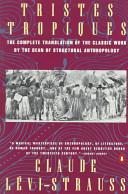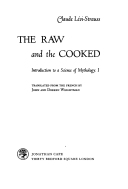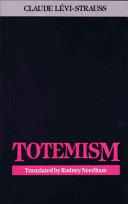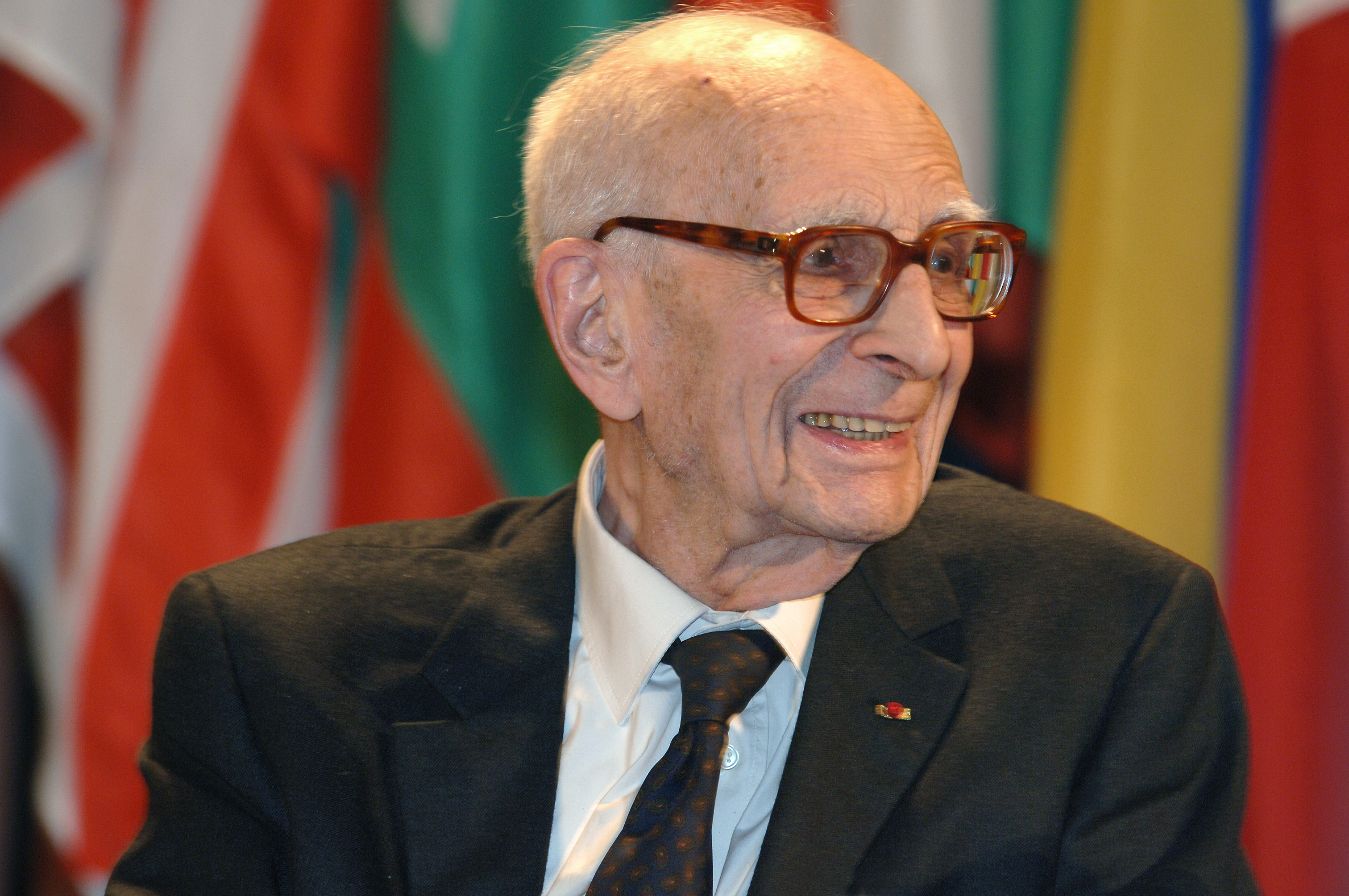Works

Tristes Tropiques
Claude Lévi-Strauss
The Raw and the Cooked
Claude Lévi-Strauss
Totemism
Claude Lévi-StraussFamous Claude Lévi-Strauss Quotes
“The police are not entrusted with a mission which differentiates them from those they serve.”
Source: Tristes Tropiques (1955), Chapter 37 : The Apotheosis of Augustus, p. 378
Context: The police are not entrusted with a mission which differentiates them from those they serve. Being unconcerned with ultimate purposes, they are inseparable from the persons and interests of their masters, and shine with their reflected glory.
Structural Anthropology, Volume 2 (1973), trans. Monique Layton, University of Chicago Press, 1983, p. 41 https://books.google.it/books?id=hI74gavU7J4C&pg=PA41
Source: Tristes Tropiques (1955), Chapter 16 : Markets p. 149
Claude Lévi-Strauss Quotes about men
Source: Tristes Tropiques (1955), Chapter 38 : A Little Glass of Rum, pp.388-389
Context: Logically, the "infantilization" of the culprit implied by the notion of punishment demands that he should have a corresponding right to a reward, in the absence of which the initial procedure will prove ineffective and may even lead to results contrary to those that were hoped for. Our system is the height of absurdity, since we treat the culprit both as a child, so as to have the right to punish him, and as an adult, in order to deny him consolation; and we believe we have made great spiritual progress because, instead of eating a few of our fellow-men, we subject them to physical and moral mutilation.
Source: Tristes Tropiques (1955), Chapter 16 : Markets, p. 148
Source: Tristes Tropiques (1955), Chapter 16 : Markets p. 149
Claude Lévi-Strauss Quotes
Source: Tristes Tropiques (1955), Ch. 1 : Setting Out, p. 17
Context: I hate travelling and explorers. Yet here I am proposing to tell the story of my expeditions. But how long it has taken me to make up my mind to do so! It is now fifteen years since I left Brazil for the last time and all during this period I have often planned to undertake the present work but on each occasion a sort of shame and repugnance prevented me from making a start. Why, I asked myself, should I give a detailed account of so many trivial circumstances and insignificant happenings? Adventure has no place in the anthropologists profession; it is merely one of those unavoidable drawbacks, which detract from his effective work through the incidental loss of weeks or months; there are hours of inaction when the informant is not available; periods of hunger, exhaustion, sickness perhaps; and always the thousand and one dreary tasks which eat away the days to no purpose and reduce dangerous living in the heart of the virgin forest to an imitation of military service … The fact that so much effort and expenditure has to be wasted on reaching the object of our studies bestows no value on that aspect of our profession, and should be seen rather as its negative side. The truths which we seek so far afield only become valid when we have separated them from this dross.
“I hate travelling and explorers.”
Source: Tristes Tropiques (1955), Ch. 1 : Setting Out, p. 17
Context: I hate travelling and explorers. Yet here I am proposing to tell the story of my expeditions. But how long it has taken me to make up my mind to do so! It is now fifteen years since I left Brazil for the last time and all during this period I have often planned to undertake the present work but on each occasion a sort of shame and repugnance prevented me from making a start. Why, I asked myself, should I give a detailed account of so many trivial circumstances and insignificant happenings? Adventure has no place in the anthropologists profession; it is merely one of those unavoidable drawbacks, which detract from his effective work through the incidental loss of weeks or months; there are hours of inaction when the informant is not available; periods of hunger, exhaustion, sickness perhaps; and always the thousand and one dreary tasks which eat away the days to no purpose and reduce dangerous living in the heart of the virgin forest to an imitation of military service … The fact that so much effort and expenditure has to be wasted on reaching the object of our studies bestows no value on that aspect of our profession, and should be seen rather as its negative side. The truths which we seek so far afield only become valid when we have separated them from this dross.
Source: Tristes Tropiques (1955), Chapter 4 : The Quest for Power, p. 43
Context: While I complain of being able to glimpse no more than the shadow of the past, I may be insensitive to reality as it is taking shape at this very moment, since I have not reached the stage of development at which I would be capable of perceiving it. A few hundred years hence, in this same place, another traveller, as despairing as myself, will mourn the disappearance of what I might have seen, but failed to see.
Source: Tristes Tropiques (1955), Chapter 9 : Guanabara, p. 86
Context: Not only does a journey transport us over enormous distances, it also causes us to move a few degrees up or down in the social scale. It displaces us physically and also — for better or for worse — takes us out of our class context, so that the colour and flavour of certain places cannot be dissociated from the always unexpected social level on which we find ourselves in experiencing them.
As quoted in his obituary, Daily Telegraph (4 November 2009) http://www.telegraph.co.uk/news/obituaries/science-obituaries/6496558/Claude-Levi-Strauss.html
Context: The idea behind structuralism is that there are things we may not know but we can learn how they are related to each other. This has been used by science since it existed and can be extended to a few other studies — linguistics and mythology — but certainly not to everything.
The great speculative structures are made to be broken. There is not one of them that can hope to last more than a few decades, or at most a century or two.
Source: Tristes Tropiques (1955), Ch. 1 : Setting Out, p. 17
Context: I hate travelling and explorers. Yet here I am proposing to tell the story of my expeditions. But how long it has taken me to make up my mind to do so! It is now fifteen years since I left Brazil for the last time and all during this period I have often planned to undertake the present work but on each occasion a sort of shame and repugnance prevented me from making a start. Why, I asked myself, should I give a detailed account of so many trivial circumstances and insignificant happenings? Adventure has no place in the anthropologists profession; it is merely one of those unavoidable drawbacks, which detract from his effective work through the incidental loss of weeks or months; there are hours of inaction when the informant is not available; periods of hunger, exhaustion, sickness perhaps; and always the thousand and one dreary tasks which eat away the days to no purpose and reduce dangerous living in the heart of the virgin forest to an imitation of military service … The fact that so much effort and expenditure has to be wasted on reaching the object of our studies bestows no value on that aspect of our profession, and should be seen rather as its negative side. The truths which we seek so far afield only become valid when we have separated them from this dross.
Source: Tristes Tropiques (1955), Chapter 4 : The Quest for Power, p. 38
Context: The order and harmony of the Western world, its most famous achievement, and a laboratory in which structures of a complexity as yet unknown are being fashioned, demand the elimination of a prodigious mass of noxious by-products which now contaminate the globe. The first thing we see as we travel round the world is our own filth, thrown into the face of mankind.
Source: Tristes Tropiques (1955), Chapter 11 : São Paulo, p. 95
Mythologiques I: Le cru et le cuit (1964)
Source: Tristes Tropiques (1955), Chapter 23 : The Living and the Dead, p. 246
Source: Tristes Tropiques (1955), Chapter 38 : A Little Glass of Rum, p. 393
Source: Tristes Tropiques (1955), Chapter 16 : Markets, p. 148
Source: Myth and Meaning (1978), Chapter 4 : When Myth Becomes History
Introduction
Myth and Meaning (1978)
"La leçon de sagesse des vaches folles" [The wise lesson of mad cows], in Études rurales (2001); as quoted in Matthieu Ricard, A Plea for the Animals, trans. Sherab Chödzin Kohn, Shambhala Publications, 2016, p. 68 https://books.google.it/books?id=bTLuDAAAQBAJ&pg=PA68
Source: Myth and Meaning (1978), Chapter 1 : The Meeting of Myth and Science
The Raw and the Cooked : Introduction to a Science of Mythology (1975) Vol. I, [Le Cru et le Cuit, as translated by Doreen and John Weightman], p. 113
Source: Tristes Tropiques (1955), Chapter 6 : The Making of an Anthropologist, p. 55
Source: Myth and Meaning (1978), Chapter 1 : The Meeting of Myth and Science
Notes in an early work, often cited as an extreme example of androcentrism, even among leading anthropologists, " Contribution à l'étude de l'organisation sociale des Indiens Bororo http://www.persee.fr/web/revues/home/prescript/article/jsa_0037-9174_1936_num_28_2_1942?_Prescripts_Search_tabs1=standard&" (1936) p. 283
Source: Myth and Meaning (1978), Chapter 2 : ‘Primitive’ Thinking and the ‘Civilized’ Mind
Source: Tristes Tropiques (1955), Chapter 38 : A Little Glass of Rum, pp.385-386
Source: Tristes Tropiques (1955), Chapter 13 : Pioneer Zone, pp.123-124
Les espèces sont choisies non commes bonnes à manger, mais comme bonnes à penser.
Totemism (1962), [Le Totémisme aujourd'hui, as translated by Rodney Needham], p. 89
Often paraphrased as "Animals are good to think with".
“Natural man did not precede society, nor is he outside it.”
Source: Tristes Tropiques (1955), Chapter 38 : A Little Glass of Rum, p. 392
Le village entier partit le lendemain dans une trentaine de pirogues, nous laissant seuls avec les femmes et les enfants dans les maisons abandonnées.
Notes in an early work, often cited as an extreme example of androcentrism, even among leading anthropologists, " Contribution à l'étude de l'organisation sociale des Indiens Bororo http://www.persee.fr/web/revues/home/prescript/article/jsa_0037-9174_1936_num_28_2_1942?_Prescripts_Search_tabs1=standard&" (1936) p. 283
